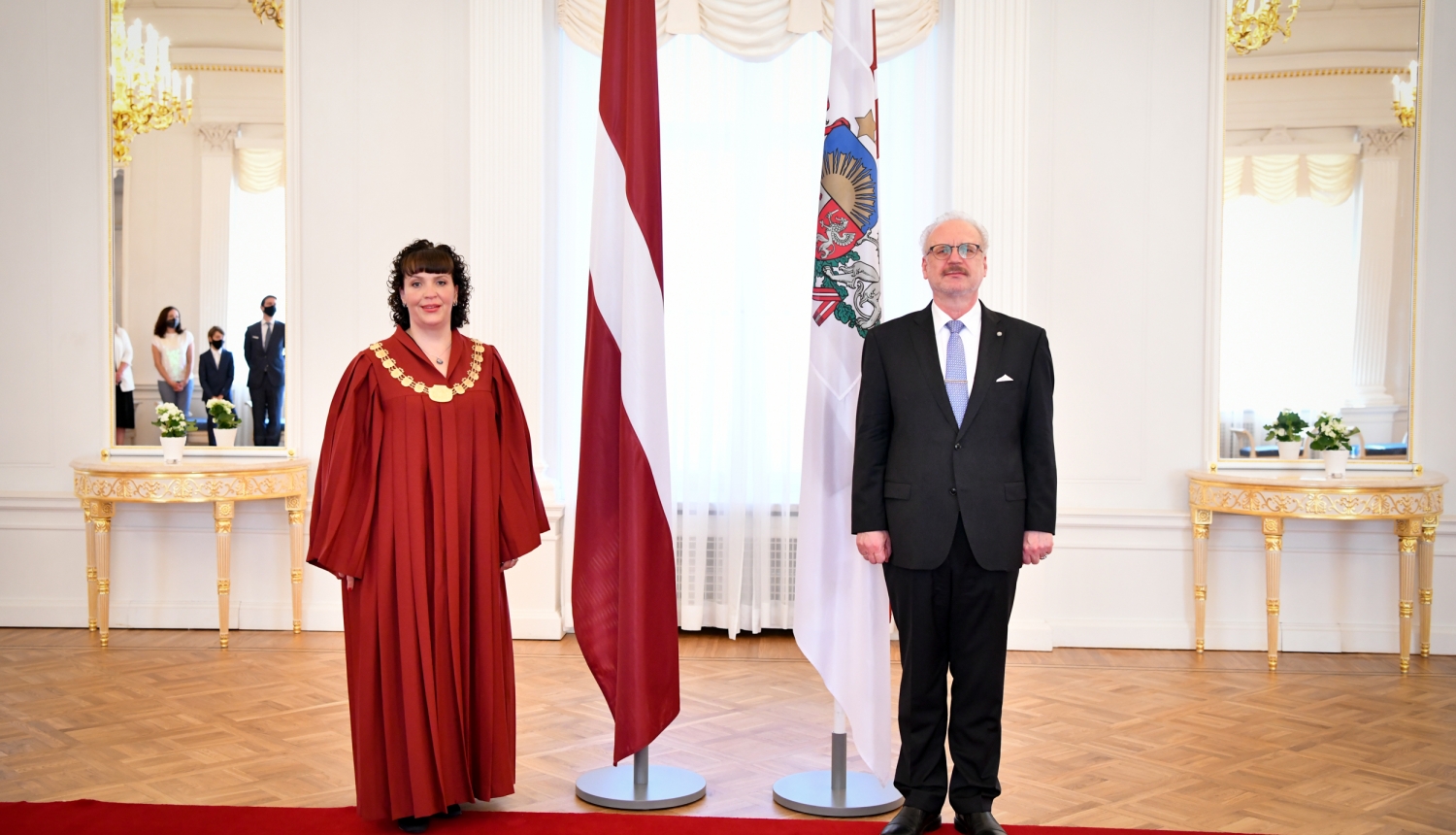On 28 June, President of Latvia Egils Levits hosted a swearing-in ceremony in the Riga Castle for the Supreme Court Judge Kristīne Zīles.
Address by the President of Latvia Egils Levits at the ceremony:
‘There is a nice new tradition of two primary sources supplying new judges for the Supreme Court: there are experienced judges who come from judicial system and there are highly-competent and professional lawyers who join the system from ‘outside’. As a result, Supreme Court gets judges that are seasoned trialists and lawyers who have excellent legal expertise and are perfectly suited for the position of a judge of the Supreme Court. One of the best examples is you, Mr Strupišs. You, too, were invited to join Supreme Court because of your supreme professional skills and scholarly achievements. And here is what I have to say about this: when it comes to law, science and practice go hand in hand, they are essentially the same. In other words, as a legal practitioner, you try to solve cases based on scientific facts, and, as an academic, you try to imagine what could be the practical implications of your theories.
Madam Zīle, you have always been exemplary in both of these areas. You have worked as lawyer for many years and you have also combined your professional practice with many years of teaching law at the University of Latvia. Your field of expertise is inheritance law, family law and civil procedure law. Now you will be able to observe how these legal science disciplines work in real life. Of course, your experience as a lawyer will also be very handy when you will put on the robe.
Senate and the Supreme Court play an important role in our legal system. It is the cassation instance, which determines whether other courts have interpreted the law the right way. Of course, some Supreme Court judgements have raised questions, but that is why we have the academics who can analyse these judgements and suggest recommendations on how to avoid certain pitfalls. That is perfectly normal, and we should encourage more such academic assessments of judgements in legal science. However, from an institutional point of view, a case needs to be closed and parties should be given an opportunity to move on with their life. That is something you should never forget when you make a judgement; always try to establish the objective truth and bring justice in a way that you can then say – my ruling was not in anybody’s favour but the truth.
Madam Zīle, I would like to conclude by wishing you to always be able to say: my judgements have always been fair and right.’




